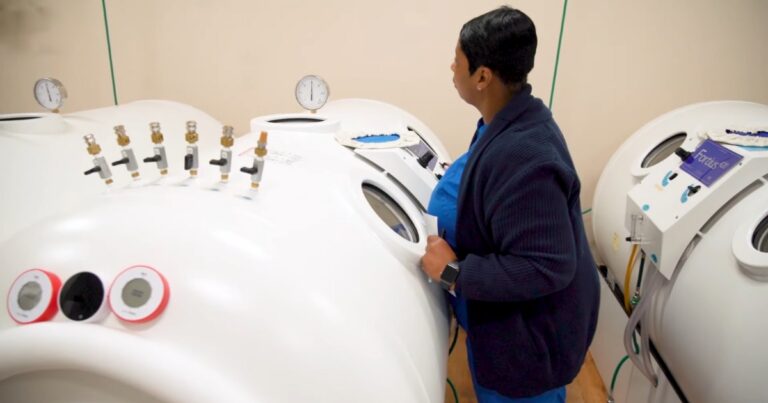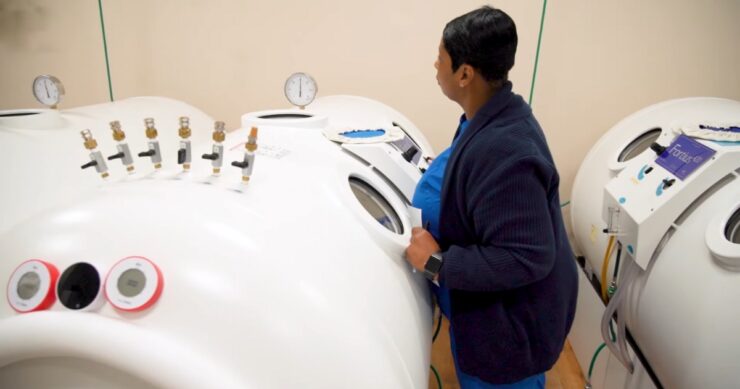The rise of sustainable urban development has shifted attention towards the methods and practices employed in street cleaning. Confronted with pressing environmental concerns and the growth of urban populations, the urgency for implementing sustainable strategies for urban cleanliness has never been greater.
Comprehending all the factors that can help us achieve a better and sustainable future is an absolute must. We will highlight the challenges and opportunities these practices present, as well as their significant impact on urban communities. Today, we want to talk about these strategies in greater detail.
Sustainable Street Cleaning
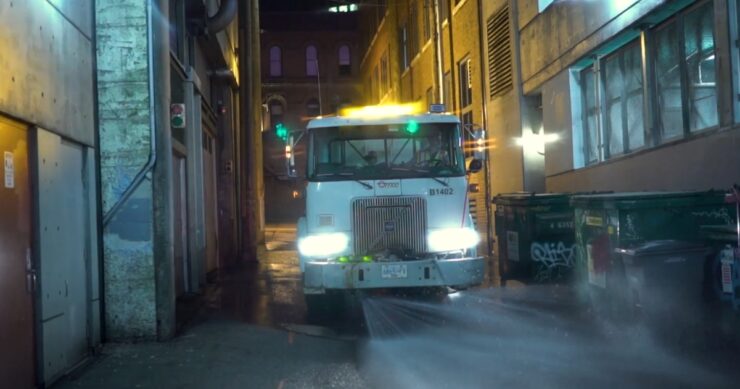
Street cleaning in urban areas faces numerous challenges, including the environmental impact of traditional methods, economic constraints, and logistical difficulties. Traditional cleaning methods often rely on chemicals and techniques that can be harmful to the environment, contributing to pollution and waste.
Moreover, the cost and complexity of maintaining an efficient street cleaning system in growing urban areas pose significant challenges for city administrations.
Innovative Techniques
Innovative sustainable techniques are revolutionizing the way streets are maintained.
A significant advancement in the field of sustainable street cleaning is the emergence of eco-friendly cleaning agents. These agents are specifically designed to minimize environmental harm, aligning with the ethos of sustainability.
Furthermore, there’s a growing trend in the adoption of industrial compact street sweepers. These machines are favored for their operational efficiency and their ability to significantly lessen environmental impact, making them a crucial component in modern, eco-conscious urban maintenance. If you are interested in finding a compact street sweeper that will minimize your labor and maintenance costs, visit https://sts-global.com/stories/compact-street-sweeper.
These sweepers are designed to be more energy-efficient and are capable of operating with lower emissions, making them a cornerstone in sustainable urban cleaning.
City-Wide Cleaning Initiatives
Government policies play a pivotal role in promoting sustainable cleaning practices. Regulatory frameworks can mandate the use of eco-friendly methods and encourage public-private partnerships to advance these initiatives. By offering incentives and support, governments can facilitate the adoption of sustainable practices across cities.
Community Engagement and Education
Engaging the community and educating the public about the importance of sustainability in street cleaning is crucial. Programs that encourage public participation in cleaning initiatives can foster a sense of responsibility and community spirit. Educational campaigns can raise awareness about the benefits of sustainable cleaning and motivate residents to adopt eco-friendly practices in their daily lives.
Technology for Efficient Cleaning
The integration of technology in city-wide cleaning initiatives offers numerous benefits. Smart city technologies, such as IoT-enabled waste management systems, can optimize cleaning schedules and routes, leading to more efficient and effective cleaning operations. Data-driven decision-making tools can help city administrations to allocate resources more effectively and respond promptly to needs.
Sustainable Practices in Private Property
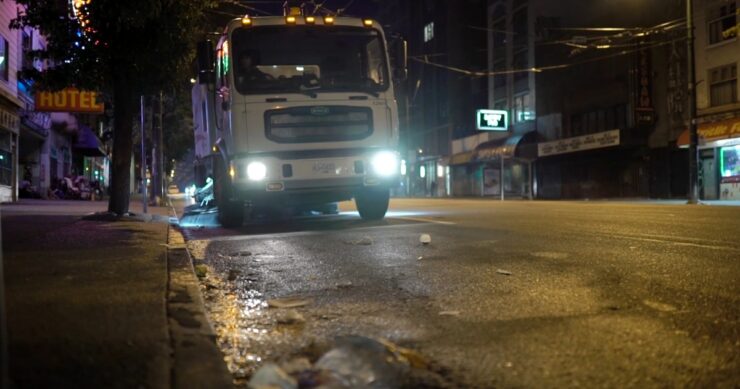
The participation of the private sector is essential in achieving city-wide sustainability goals. Private properties, including residential and commercial buildings, contribute significantly to urban cleanliness and waste generation. Encouraging sustainable practices in these areas is vital for the overall success of urban cleaning initiatives.
Green Cleaning Solutions for Private Properties
Sustainable cleaning solutions for private properties include the use of biodegradable and non-toxic products. These products ensure that the environmental impact of cleaning is minimized. Sustainable waste disposal methods, such as composting and recycling, also play a crucial role in maintaining cleanliness and reducing waste in private properties.
Encouraging Behavioral Change
Promoting behavioral change is key to the widespread adoption of sustainable practices. Incentives, such as tax breaks or recognition programs, can motivate property owners to adopt sustainable methods. Building a community culture that values environmental responsibility can have a lasting impact on the cleanliness and sustainability of urban areas.
Challenges and Opportunities
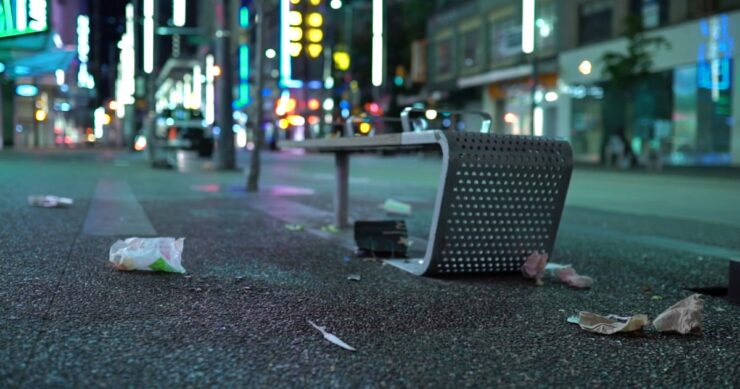
The transition to sustainable street cleaning practices embodies a complex interplay of challenges and opportunities. This shift demands not only a change in technology and methods but also a significant transformation in public attitudes and policy frameworks.
Challenges
First, let us take a look at some challenges.
Resistance to Change
One of the primary hurdles is the inherent resistance to change, especially in well-established municipal systems. Traditional methods of street cleaning are deeply ingrained in city maintenance routines, and shifting to new, sustainable practices requires retraining personnel, altering public perceptions, and modifying long-standing operational procedures.
High Initial Costs
Sustainable technology adoption often comes with high initial investment costs. For instance, the procurement of industrial compact street sweepers and other eco-friendly equipment can be financially challenging for many municipalities. This financial burden can be a significant deterrent, particularly in regions with limited budgets for urban maintenance.
Lack of Awareness and Education
A fundamental challenge in implementing sustainable street cleaning practices is the lack of awareness among stakeholders, including city officials, cleaning staff, and the general public. Without a thorough understanding of the environmental and long-term economic benefits of sustainable practices, garnering support for these initiatives can be difficult.
Regulatory and Policy Hurdles
In many cases, existing regulations and policies are not aligned with sustainable practices, creating bureaucratic hurdles. Updating these policies to support and incentivize sustainable cleaning methods is a lengthy process that requires concerted efforts from various sectors.
Opportunities
Now that we understand challenges, let’s see what opportunities are.
Innovative Technologies
The advancement of new technological solutions, including sophisticated industrial compact street sweepers, presents substantial prospects for enhancing the efficiency and eco-friendliness of street cleaning operations. These cutting-edge technologies are designed not only to minimize environmental impact but also to be more economically viable over time, owing to their reduced operational expenses.
Environmental Benefits
Sustainable practices contribute significantly to reducing urban pollution and enhancing the overall environmental quality of cities. By adopting these methods, cities can play a pivotal role in addressing larger environmental issues such as climate change and air quality improvement.
Economic Incentives
In the long term, sustainable street cleaning practices can lead to economic benefits. Reduced reliance on non-renewable resources, lower energy consumption, and decreased pollution can translate into cost savings for municipal administrations.
Summary
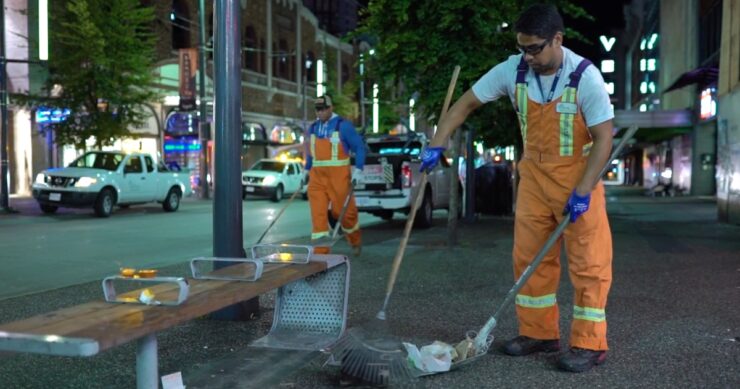
This paper has explored the various dimensions of sustainable street cleaning in urban environments. From the use of eco-friendly agents and innovative technologies like industrial compact street sweepers to community engagement and policy interventions, the potential for creating cleaner cities through sustainable practices is evident.
As urban populations continue to grow, the importance of adopting sustainable strategies becomes increasingly clear, offering a path towards cleaner, greener, and more livable cities for future generations.


